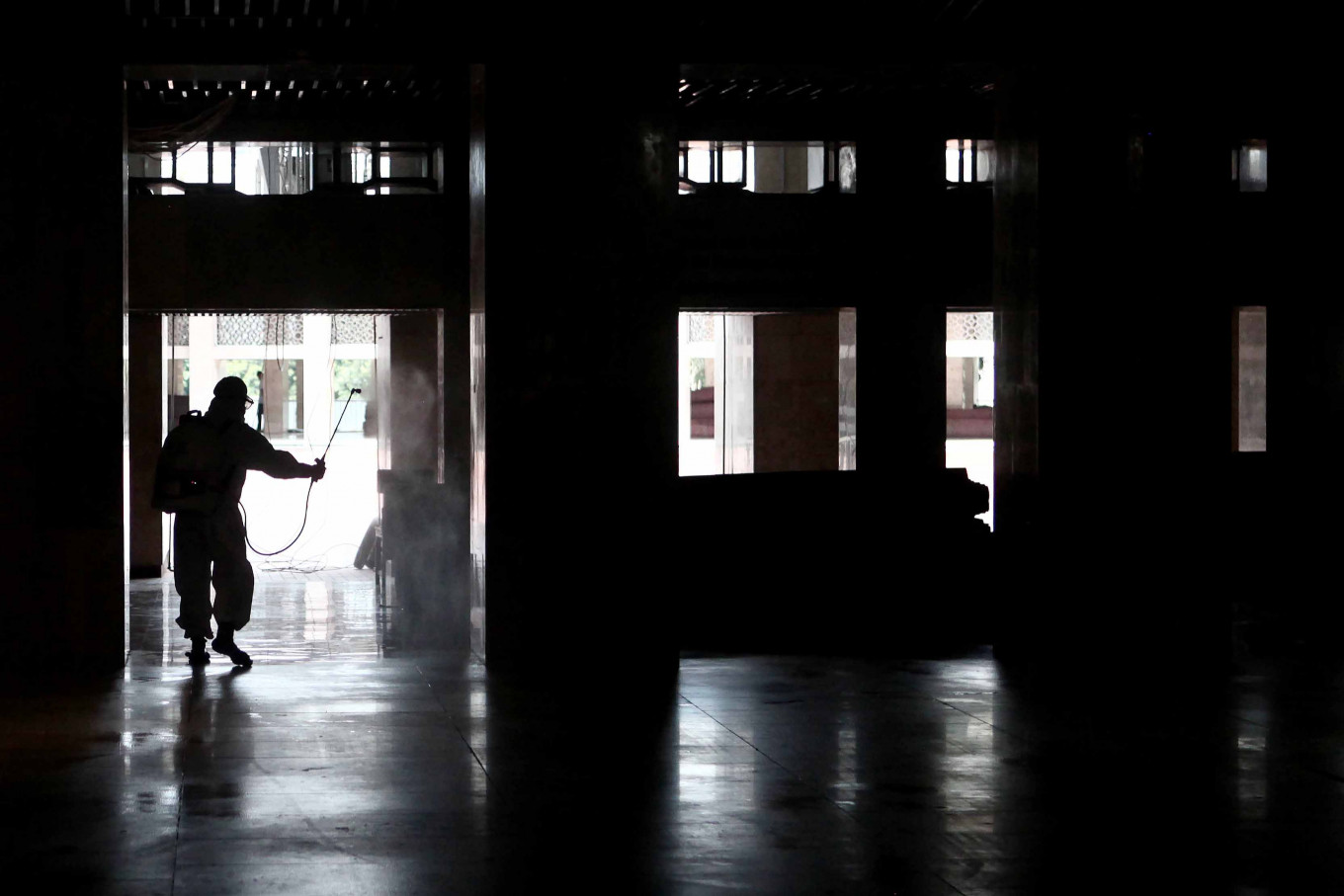Popular Reads
Top Results
Can't find what you're looking for?
View all search resultsPopular Reads
Top Results
Can't find what you're looking for?
View all search resultsAfter COVID-19: The world must choose its development path
In recovering from the dual global crises in health and the economy, the pandemic offers both a warning and a solution to the unsustainable methods that paved the development path before the virus's emergence.
Change text size
Gift Premium Articles
to Anyone
T
he two concurrent global crises in the health and economic sectors have engulfed the world. The necessary public health response to the COVID-19 pandemic has set in motion a globally synchronized economic recession that is putting the financial system on the brink and leaving behind no obvious engines of global growth.
The policy responses will determine the human toll of the pandemic and the length and severity of the economic downturn. They will also determine the economic, social and environmental progress towards – or regression away from – attaining the Sustainable Development Goals (SDGs).
This reflection on the compound crisis and what is at stake is extracted from a UNDP report on the "COVID-19 UNDP's Integrated Response" released on April 24. The analysis also applies to Indonesia, which now confronted with both a growing number of coronavirus cases that is placing the health sector under severe strain and a socioeconomic crisis that is already being felt by millions of Indonesians.
The UNDP analysis offers recommendations on policy responses to COVID-19 that are relevant to Indonesia and can help address the current challenges as well as those that lie ahead.
First, rapid response and implementation are critical. The UNDP therefore calls for policies that can be adopted and implemented quickly to meet immediate needs. These include containing the virus’s spread to strengthening health systems for the present emergency and others to come while simultaneously responding to the looming economic downturn.
The measures Indonesia has taken over the last weeks – ramping up COVID-19 testing capacity and coverage, providing incentives for health workers and adopting specific social protection measures – go a long way toward addressing its immediate needs. Adopting additional policy responses will be needed as the dual crises evolve in scope and magnitude.
Second, the UNDP notes that, given the expected magnitude of the economic downturn, stimulus packages are essential to safeguard developmental gains in health, employment and human security. A large proportion of these stimulus packages should target the poor and the most vulnerable groups that will be most affected by the crises.
Specific considerations must also be taken with regard to gender, as history has consistently shown that a disproportionate burden of coping with crises falls to women. As part of the stimulus package, the Indonesian government has adopted combined social protection measures such as conditional free electricity with income support, including unemployment protection for preventing job loss and for supporting those who have lost their jobs as a direct result of the crises.
The effective implementation and accurate targeting of these social protection measures, together with the six-month tax exemption for workers in the manufacturing sector, can cushion the impact of the crises on the most vulnerable.
Thailand, the Philippines and other ASEAN countries have adopted additional measures, including sickness benefits that ensure income security during sick leave, as well as old age, survivor and disability benefits. These are measures that Indonesia can consider to contribute further to reducing the impacts of the crises.
Like other governments in the region, Indonesia has announced corporate tax breaks. But it needs more targeted protection measures for small and medium enterprises (SMEs) and the millions of jobs they generate, as many SMEs may not otherwise survive the acute economic slowdown as a direct impact of the health crisis.
Third, the UNDP calls for the creation of fiscal space to respond to the crises by revisiting existing policies rather than applying patches. At a time when a “sudden stop” in capital inflows is a real risk for developing countries, including Indonesia, the optimal approach could be to redeploy existing public resources in order to avoid very large deficits that would lead to surging national debt.
In addition, globally coordinated action is needed to address long-standing “fiscal termites” that have been undermining national budgets, such as transfer pricing, tax havens, multinational tax avoidance, the untaxed digital economy and fossil fuel subsidization. Once such sources are used to cover some of the funds needed for the fiscal stimulus packages, financing the remaining fiscal costs will become more feasible.
Lastly and most fundamentally, the legitimate focus on current responses should not distract us from the fact that COVID-19 has come amid the ongoing and escalating climate crisis. The pandemic should instead make us all more aware that the development path based on overexploitation of natural resources and unsustainable changes in land use has reached its limits.
The analysis points specifically to the growth in animal-sourced products, coupled with the destruction of land and underwater animal habitats, that has brought the COVID-19 virus to humans. When the pandemic recedes, developed and developing countries alike must avoid the temptation to go for economic recovery at all costs by foregoing their commitments to the Paris Agreement and the SDGs in resuming unsustainable paths.
Governments, the private sector and citizens should heed the warnings by resisting this temptation and instead turning the crisis into an opportunity by accelerating low-carbon development, using resources efficiently, minimizing environmental degradation and transforming consumption and production patterns.
The Indonesian government already has robust policies in place for building a low-carbon, climate-resilient economy and is well placed to make the choice to rebuild better and greener. The development choices still to be made will determine the future for Indonesia and the rest of the world.
***
UNDP Indonesia resident representative











